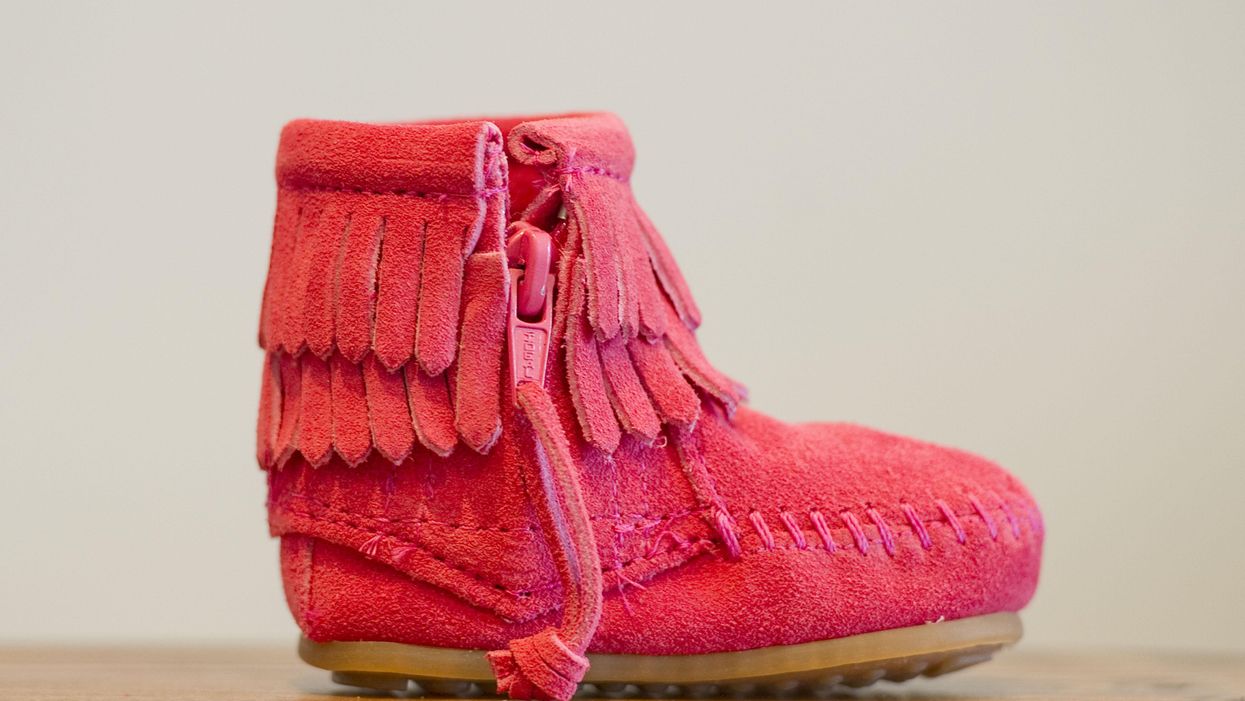
Photo by Carlos Osorio/Toronto Star via Getty Images

Minnetonka has issued an apology for what it says was a move in "appropriating" Native American culture for using the term "moccasin" for its shoe line and announced that the company is not Native-owned.
The company issued a contrite statement on Monday — Indigenous Peoples' Day — and said that the apology was "long overdue."
According to a Wednesday report from NPR, Minnetonka CEO David Miller said Monday, "We recognize that our original products, some of which are still sold today, have been appropriated from Native American culture. We deeply and meaningfully apologize for having benefited from selling Native-inspired designs without directly honoring Native culture or communities."
Miller added that the word "moccasin" itself comes from the Ojibwe word "makizinan," which was appropriated by white settlers.
Miller explained that the company decided to release the announcement to "directly address two questions that have often been asked of us."
"Is Minnetonka Native-owned?" Miller wrote. "Does Minnetonka support Native American peoples or causes?"
The CEO explained the the company is not, in fact, Native-owned, but has been making strides to benefit Native causes.
In 2008, the company rebranded its logo to remove the word "moccasin," and in 2020 redesigned its logo to remove symbols around the letter "T" that made it appear similar to an arrow.
"For many years, we have privately supported Native causes in our home state of Minnesota — but simply giving back is not enough," Miller added in his statement, noting that the company appointed a "reconciliation adviser" to rebrand its image with the Native American community and make amends.
He added, "We are taking a more active and public stance in supporting Native communities."
The reconciliation adviser — Adrienne Benjamin, who is Anishinaabe as well as a member of the Mille Lacs Band of Ojibwe — added in a statement, "When a company is called out, there are always words, but real change and effort undoubtedly starts with the redistribution and sharing of resources. Since much of this company's wealth came from appropriation, it would only be right for this company to truly invest back into those communities from which it stole. ... To me, that must come first and foremost."
Benjamin's statement added, "No artist, activist, or the like will want to work with nor trust an organization that is not putting its money where its mouth is in reference to its appropriation, and the benefits, they've experienced because of it."
According to the report, the company's plan of action includes "five central commitments" to the Native community including "staffing, brand language, design collaborations, business relationships, and philanthropy."
"There are many things to be excited about with the future of this company and the opportunities for Indigenous artists to be a part of the move forward," Benjamin added.